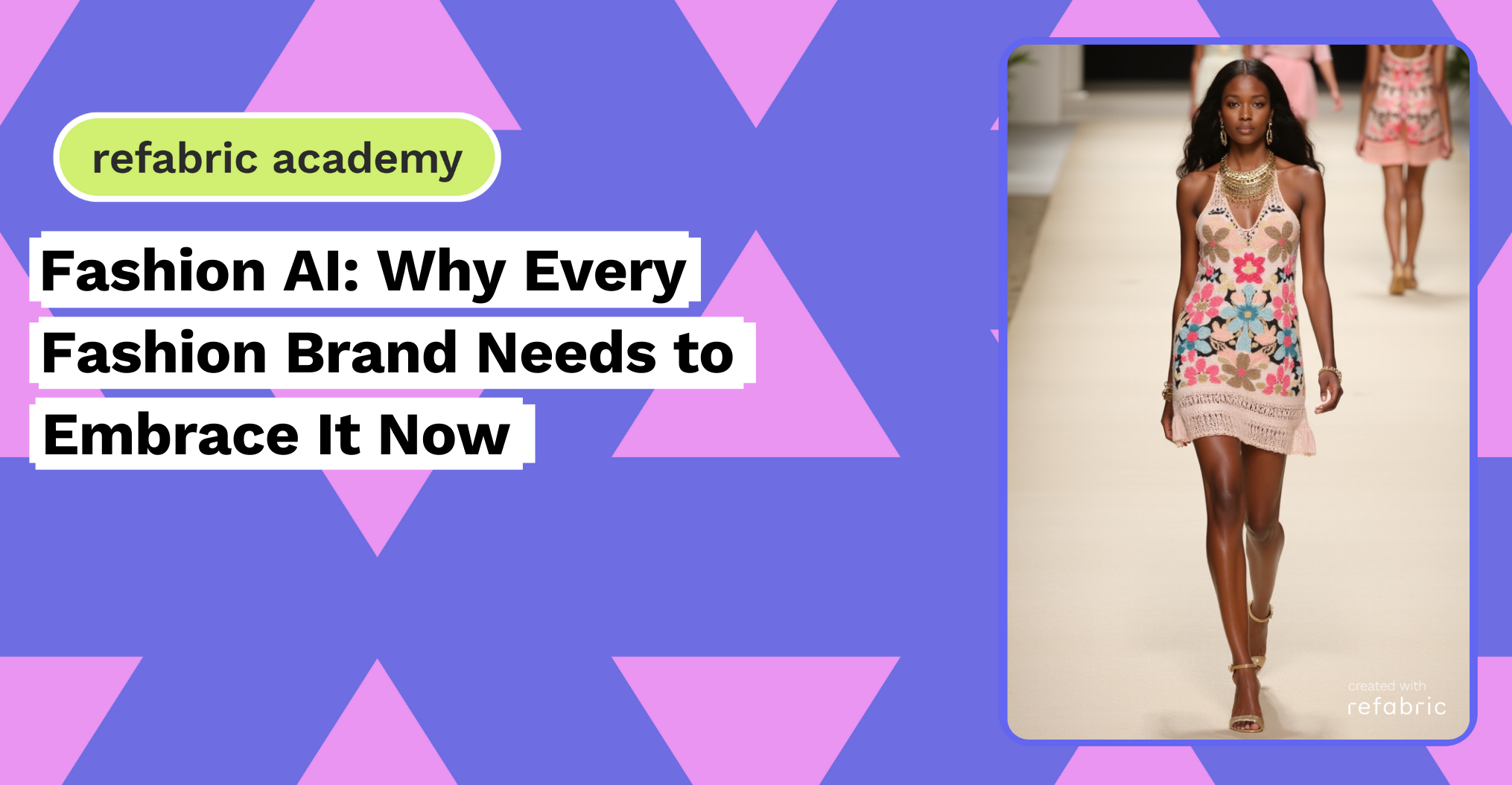In today’s fast-evolving industry, fashion AI is no longer just a futuristic concept, it’s a critical tool that fashion brands must adopt to thrive. As consumer expectations soar and global markets shift, early adopters of fashion AI are gaining a significant edge through sharper customer insights, resilient operations, and superior efficiency. For brands that want to stay ahead, the time to embrace fashion AI is now.
Building Brand Resilience with Fashion AI
The fashion industry is increasingly subject to volatile market dynamics, economic uncertainty, supply chain disruptions, and rapidly changing consumer preferences. Fashion AI equips brands with predictive tools that can forecast market trends, monitor inventory risks, and detect early signals of disruption. This foresight empowers decision-makers to act swiftly and strategically.
AI-driven analytics allow brands to plan for fluctuations, adjust production levels, and optimize stock allocation in real time. For example, by analyzing past sales data and current social media sentiment, AI models can help brands predict which items will become hits next season, ensuring they’re prepared to meet demand while minimizing overproduction and waste.
Uncovering Deep Customer Insights
One of the most transformative benefits of fashion AI is its ability to decode consumer behavior. Machine learning algorithms process vast datasets, social media activity, purchase histories, online browsing patterns to uncover what customers want, when they want it, and why.
This level of insight enables personalized marketing and product development strategies that resonate with individual consumers. From recommending the perfect outfit to customizing emails based on shopping behavior, fashion AI helps brands deepen their relationships with customers and drive higher engagement and loyalty. Personalized experiences aren’t just a luxury anymore, they’re expected, and fashion AI makes them scalable.
Streamlining Operations and Maximizing Efficiency
Behind the runway, fashion AI is revolutionizing how brands operate on a daily basis. It streamlines processes across the value chain from design and production to logistics and customer service.
Designers benefit from AI-generated trend forecasts and digital prototyping tools that reduce the need for physical samples and accelerate the go-to-market timeline. Supply chain managers use AI-powered platforms to track inventory levels and automatically reorder materials based on predicted demand. Even customer service is enhanced through AI chatbots that provide instant, around-the-clock support.
All these enhancements add up to a leaner, faster, and more cost-effective operation that can adapt quickly to changing conditions and customer needs.
Fashion AI: A Competitive Imperative, Not Just an Innovation
While adopting AI may have once been seen as a bold innovation, it’s quickly becoming a competitive necessity. Brands that delay adoption risk falling behind as industry leaders embrace fashion AI to deliver better products, smarter marketing, and elevated customer experiences.
Moreover, early adoption allows brands to build AI capabilities into their core systems, creating a foundation for long-term growth. By experimenting, learning, and optimizing early, these brands are better positioned to capitalize on future breakthroughs whether it’s next-gen personalization, virtual fashion shows, or intelligent textiles.
Why “Now” Matters More Than Ever
Embracing fashion AI today positions brands to lead tomorrow. The longer companies wait, the harder it will be to catch up. Early adopters are already leveraging AI to forecast trends, reduce waste, and create immersive shopping experiences that blend physical and digital retail.
This isn’t just about keeping pace with competitors, it’s about staying relevant to a new generation of consumers who value innovation, sustainability, and personalization. With fashion AI, brands can meet these expectations while also building a more agile, intelligent, and future-ready organization.
Fashion AI isn’t just enhancing the fashion industry, it’s redefining it. For brands looking to future-proof their business, the benefits of early AI adoption are clear: deeper customer insights, streamlined operations, and greater resilience in an unpredictable market. Those who act now will set the standard for what’s next in fashion. Those who don’t may struggle to keep up. The era of fashion AI is here, smart brands will seize it.
